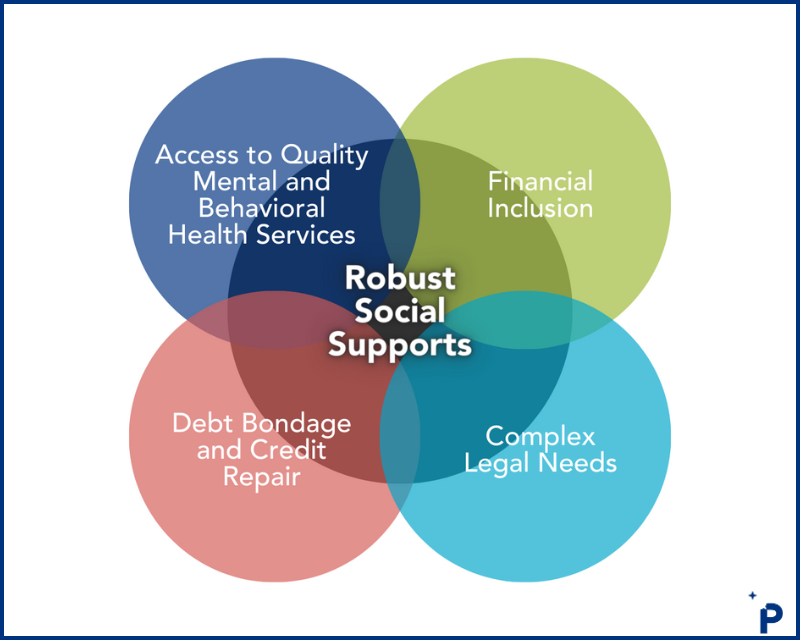
Policy change takes time and collective effort — and when we reach our goals, it’s important to celebrate milestones and keep the momentum going. In that spirit, this blog is one of a three-part series on recent wins across the country, as states introduce and improve laws that prevent exploitation, support survivors, and hold traffickers accountable.
Polaris has played our part in these successes, sitting on local coalitions, providing testimony, writing letters, and filing slips in support of survivor-centered policies. But this work needs all partners at the table to be successful — and we invite you to join the movement.
**********
From coast to coast, anti-trafficking advocates are joining with worker rights and prison reform partners to prevent labor trafficking.
In the District of Columbia, the Domestic Worker Employment Rights Amendment Act of 2022 — known as the DC Domestic Workers’ Bill of Rights — will be implemented in 2024 after the DC Council fully funded the effort in next year’s budget.
Before this law, house cleaners, nannies, home health aides, and other domestic workers were excluded from the District’s Human Rights Act prohibiting discrimination based on race, sex, gender, national origin, and other traits. Without protection, DC’s domestic workers — mostly women of color and immigrants — have been vulnerable to threats, harassment, and exploitation.
Sign up to learn more about human trafficking and how you can help
The new act includes domestic workers under the Human Rights Act and occupational health and safety laws. It also requires written agreements between employers and domestic workers, and gives workers information on their rights through a new outreach and education program.
Meanwhile, Nevada and California advocates are working to end a different exception. Sixteen states — along with the Thirteenth Amendment to the U.S. Constitution — still allow forced labor as a punishment for a crime. Incarcerated individuals can be mandated to work and paid little to nothing, essentially leaving them without resources to provide for their families or give back to their communities.
But momentum for change is growing: Seven states have recently eliminated this language that exploits institutionalized labor from their constitutions, and Nevada hopes to follow suit. This year, they passed a joint resolution to remove the exception, which will go before voters in 2024. Similar steps are being taken in neighboring California, with the introduction of the End The Slavery in California Act.
How can you help? If you’re in DC, Nevada, or California, join local efforts to ensure these efforts reach their goals. At the federal level, show your support for a National Domestic Workers’ Bill of Rights and the Abolition Amendment to the Constitution, reintroduced this year ahead of Juneteenth.
Stop human trafficking today
Help fix the broken systems that make trafficking possible so we can prevent it from happening in the first place.



